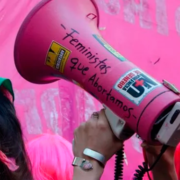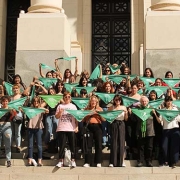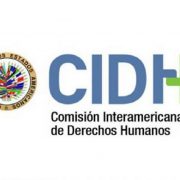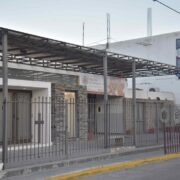Legal abortion must be fully enforced throughout the country
Civil society organizations demand, after the precautionary measure decided by a Chaco fair judge, that access to the voluntary interruption of pregnancy be guaranteed in that province. It is a right won in a democratic process, after a long debate in Congress.
“Below, we offer a google translate version of the original article in Spanish. This translation may not be accurate but serves as a general presentation of the article. For more accurate information, please switch to the Spanish version of the website. In addition, feel free to directly contact in English the person mentioned at the bottom of this article with regards to this topic”
Law 27610, which regulates access to voluntary interruption of pregnancy and post-abortion care, must be fully applied throughout Argentina. After the precautionary measure resolved by the fair judge, Marta Beatriz Aucar de Trotti, in charge of the Civil and Commercial Court No. 19 of the city of Resistencia, which suspended the application of the law in the territory of Chaco, we demand that no Zones of discrimination are created for the rights to health and autonomy of women and other people with the ability to gestate based on the domicile set in one or another province.
The action was filed by six people, who argued an alleged contradiction between the Provincial Constitution and national law and asked that the law be suspended throughout the territory. The judge omits to rule on the inadmissibility of such requests in our legal system and is unaware that no judge can suspend the validity of a law with general effects. In addition, she does not warn that the fact that the Chaco Constitution protects life from conception is not an obstacle to the application of the law, neither in Chaco nor in any of the other provinces that provide that type of protection. This evaluation of the constitutionality of the abortion legislation was already carried out by the Supreme Court of Justice of the Nation in the “FAL” ruling in 2012.
Amnesty International, CELS, the Latin American Justice and Gender Team (ELA), Mujeres x Mujeres and Fundeps emphasize the importance of both the provinces and the national State upholding the law and questioning judicial decisions that put the right to abortion in crisis , particularly when they do so in violation of the principle of constitutional supremacy, the division of powers and distort the democratic debate.
The Supreme Court of the Nation has already said, within the framework of a precautionary measure that suspended throughout the country the application of the audiovisual communication services law, that a precautionary measure that suspends the validity of an entire law with general effects for the entire population, is incompatible with the concrete control of constitutionality of the laws, the division of powers and reasonableness.
Beyond the differences with this case, when issuing a precautionary measure, judges must take into account the credibility of the rights affected and the danger of delaying a decision on the case. To do so, it must analyze the consequences of the issuance of its measure in a broad way, taking into account the interest of society as a whole and the impact on the rights enshrined.
In the precautionary measure issued, the existence of an infringed right to the plaintiffs, nor the danger of delay, are not proven. And what is very serious, the measure puts at risk at the local level the right to health of women, girls and people with childbearing capacity.
Decisions of this type only undermine the use of legal tools, so important for the guarantee of rights such as precautionary measures, and the legislative process carried out with a wide debate in December, supported by strong social support and with the transversal accompaniment of the main political forces.
It is important that the users of these services and with the right to access the voluntary interruption of pregnancy as established by Law 27,610 know that the national State and the provinces must guarantee their access throughout the country. Until the Chaco justice reverses this precautionary measure, we must emphasize that the right to legal abortions in force in Argentina for a hundred years (that is, if the pregnancy was the result of rape, if the pregnancy affects the health of the person or if it puts your life at risk) is in force in Chaco as in the entire national territory, and health personnel must provide those services.
Faced with attacks of this type on existing rights, we insist that the provinces and the national State question the judicial decisions that deprive women, girls and people with the capacity to gestate in the exercise of their sexual and reproductive rights, including the right to abortion. We must continue to take care of everyone’s health.
Amnistía Internacional Argentina
CELS
ELA
Fundeps
Mujeres x Mujeres











